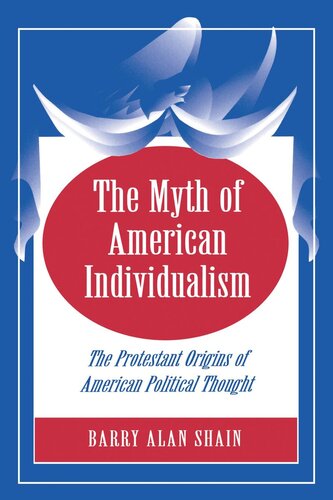

Most ebook files are in PDF format, so you can easily read them using various software such as Foxit Reader or directly on the Google Chrome browser.
Some ebook files are released by publishers in other formats such as .awz, .mobi, .epub, .fb2, etc. You may need to install specific software to read these formats on mobile/PC, such as Calibre.
Please read the tutorial at this link: https://ebookbell.com/faq
We offer FREE conversion to the popular formats you request; however, this may take some time. Therefore, right after payment, please email us, and we will try to provide the service as quickly as possible.
For some exceptional file formats or broken links (if any), please refrain from opening any disputes. Instead, email us first, and we will try to assist within a maximum of 6 hours.
EbookBell Team

4.8
64 reviewsSharpening the debate over the values that formed America's founding political philosophy, Barry Alan Shain challenges us to reconsider what early Americans meant when they used such basic political concepts as the public good, liberty, and slavery. We have too readily assumed, he argues, that eighteenth-century Americans understood these and other terms in an individualistic manner. However, by exploring how these core elements of their political thought were employed in Revolutionary-era sermons, public documents, newspaper editorials, and political pamphlets, Shain reveals a very different understanding--one based on a reformed Protestant communalism.
In this context, individual liberty was the freedom to order one's life in accord with the demanding ethical standards found in Scripture and confirmed by reason. This was in keeping with Americans' widespread acceptance of original sin and the related assumption that a well-lived life was only possible in a tightly knit, intrusive community made up of families, congregations, and local government bodies. Shain concludes that Revolutionary-era Americans defended a Protestant communal vision of human flourishing that stands in stark opposition to contemporary liberal individualism. This overlooked component of the American political inheritance, he further suggests, demands examination because it alters the historical ground upon which contemporary political alternatives often seek legitimation, and it facilitates our understanding of much of American history and of the foundational language still used in authoritative political documents.